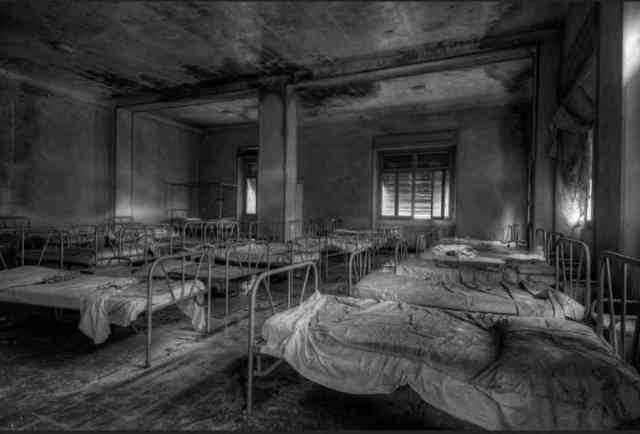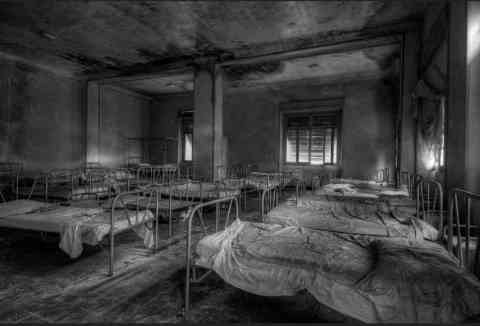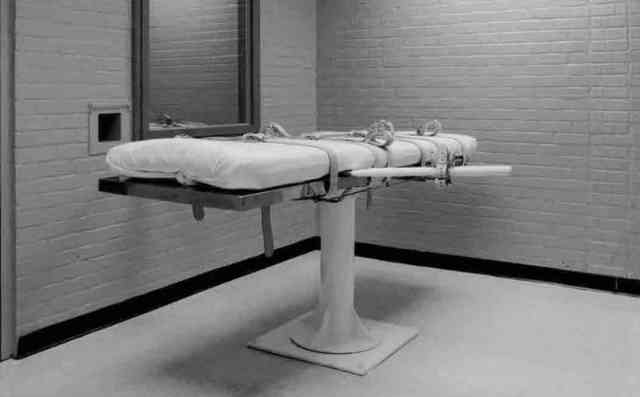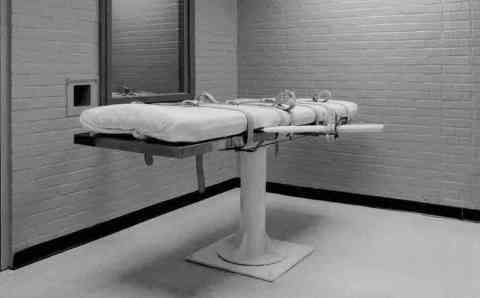The Experiment Begins
It's recommended by many sleep experts that you should get seven to nine hours per night for a healthy adult. With a good and refreshing night's sleep, you can recover and rest your muscles, refresh your brain, and keep your immune system up and running. However, this didn't stop Russian scientists back in 1940 from discovering a gas mixture that they thought would diminish a person's need for sleep. In order to test their theory, researchers gathered some enemies of the Russian State and locked them in a chamber for 30 days while pumping this gas into the chamber to see what would happen. Well, the results ended up being more than they ever thought possible.


It's recommended by many sleep experts that you should get seven to nine hours per night for a healthy adult. With a good and refreshing night's sleep, you can recover and rest your muscles, refresh your brain, and keep your immune system up and running. However, this didn't stop Russian scientists back in 1940 from discovering a gas mixture that they thought would diminish a person's need for sleep. In order to test their theory, researchers gathered some enemies of the Russian State and locked them in a chamber for 30 days while pumping this gas into the chamber to see what would happen. Well, the results ended up being more than they ever thought possible.
The Experiment Begins
During the late 1940s, five men within the Russian State chose enemies to take part in an experiment involving sleep deprivation. The goal of this experiment was to use small doses of an experimental gas stimulant that will supposedly eliminate the need for sleep. The subjects were to be kept in a sealed environment so that the researchers wouldn't have to smell the gas. The only thing in the prisoners cells were a microphone to communicate with the researchers, books, a toilet, running water, enough food to last them a month, and a cot with no bedding. The First Three Days
The first three days of the experiment seemed to go well. The researchers told the prisoners (falsely) that if they cooperated and didn't sleep for 30 days, they would be granted freedom. In order to pass the time, the prisoners opened up to each other and talked about their past traumas. After the fourth day, the stories and conversations became increasingly dark.. The Fifth Day
The Screaming
Silence
Opening the Doors
The researchers explained to the prisoners that it was necessary for them to open the chamber door. They said that if the prisoners didn't try to run, only one of them would earn his freedom. A calm voice responded through the intercom saying, "we no longer wish to be freed." Going In
Self-Inflicted Wounds
It was discovered that the subjects who were still alive were missing skin and flesh, and these wounds appeared to be self-inflected ones. The soldiers were terrified of bringing their bodies outside of the chamber. The prisoners continued to yell to the soldiers that they wanted to be left in the chamber. They also begged for the gas to be turned back on unless they wanted them to fall asleep. Resilient
Awake
Remaining Awake
The Experiment Begins
During the late 1940s, five men within the Russian State chose enemies to take part in an experiment involving sleep deprivation.


The goal of this experiment was to use small doses of an experimental gas stimulant that will supposedly eliminate the need for sleep. The subjects were to be kept in a sealed environment so that the researchers wouldn't have to smell the gas. The only thing in the prisoners cells were a microphone to communicate with the researchers, books, a toilet, running water, enough food to last them a month, and a cot with no bedding.
The First Three Days
The first three days of the experiment seemed to go well. The researchers told the prisoners (falsely) that if they cooperated and didn't sleep for 30 days, they would be granted freedom. In order to pass the time, the prisoners opened up to each other and talked about their past traumas. After the fourth day, the stories and conversations became increasingly dark.. The Fifth Day
The Screaming
Silence
Opening the Doors
The researchers explained to the prisoners that it was necessary for them to open the chamber door. They said that if the prisoners didn't try to run, only one of them would earn his freedom. A calm voice responded through the intercom saying, "we no longer wish to be freed." Going In
Self-Inflicted Wounds
It was discovered that the subjects who were still alive were missing skin and flesh, and these wounds appeared to be self-inflected ones. The soldiers were terrified of bringing their bodies outside of the chamber. The prisoners continued to yell to the soldiers that they wanted to be left in the chamber. They also begged for the gas to be turned back on unless they wanted them to fall asleep. Resilient
Awake
Remaining Awake
The other prisoners received the similar operations, also while awake. The doctors asked them why they had done such horrific things to themselves, and why they wanted the gas again so badly. One of the prisoners gave a simple answer, "I must remain awake." The other prisoners received the similar operations, also while awake.


The doctors asked them why they had done such horrific things to themselves, and why they wanted the gas again so badly. One of the prisoners gave a simple answer, "I must remain awake."





